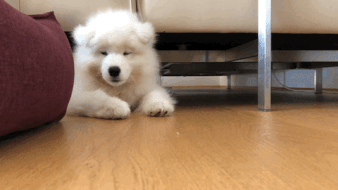Australia has entered a new phase of the COVID-19 pandemic, with mandatory isolation for positive cases coming to an end across the country from today.
Look back at all of today's developments with our blog.
Key events
- Are we going to experience a massive wave of cases?
- Could isolation rules come back?
- What's happening with COVID vaccines for children under 5?
- Could we see more cases of long COVID now?
- What happens if I get COVID-19 now?
- How will this effect casual employees?
- How are you feeling about the changes to COVID isolation?
- Support payments for most workers with COVID have also ended
- Do I still need to report a positive RAT?
- Queensland: 21 deaths, 7,064 new cases
- Is COVID-19 still infectious?
- Positive RATs no longer need to be reported in NSW
- What's the latest COVID-19 case data?
- Wondering when these changes to isolation happened?
Live updates
By Kate Ainsworth
That's all for today's COVID blog
Thanks so much for joining us throughout the afternoon.
You can continue to stay up to date with the latest news here on the ABC News website and on our app.
Until next time!

By Kate Ainsworth
Are we going to experience a massive wave of cases?
While it's impossible to predict the future, Professor Paul Kelly has said it would be "highly likely" that there will be further waves of infection, and that will continue for at least another two years or so.
"This is due to a combination of viral factors … human biology [waning immunity from infection and vaccination], human behaviour [lower adherence to public health messaging including mask wearing, staying home when sick] and environmental factors [winter seasons]," he said.
Professor Kelly has also warned that we could be subjected to another variant before the end of 2022 (sorry to be the bearer of bad news).
By Kate Ainsworth
Could isolation rules come back?
Although we're in a good spot across Australia when it comes to COVID cases, never say never.
There isn't a plan in place currently for what happens in the event COVID cases surge — but Professor Paul Kelly suggested the need for a transition plan to ensure Australia is prepared in the future.
National cabinet agreed a fortnight ago that a plan was needed, and it will likely be developed by Professor Kelly and the AHPPC (Australian Health Protection Principal Committee).
By Kate Ainsworth
What's happening with COVID vaccines for children under 5?
A few of you have asked this question today — here's what we know.
Currently, children aged between 6 months to under 5 years are eligible to be vaccinated against COVID-19 if they're immunocompromised, have complex health conditions or disability.
At them moment though, the vaccine advisory body, ATAGI does not recommend children in this age group to be vaccinated against COVID.
That's because they consider the risk for severe illness from COVID to be "very low" for children in this age group.
However — this could change in the future.
ATAGI says the COVID vaccination for children is "under ongoing consideration" based on data on the disease burden, epidemiology, vaccine supply, new COVID vaccines for this age group, and ongoing data.
By Liana Walker
Should I still be wearing a mask?
Masks are generally still recommended for spaces you can't socially distance and for COVID-19 close contacts, and of course if you have COVID-19 yourself.
But masks are still mandated in the following places across the country:
- residential aged care facilities
- shared disability accommodation services
- hospitals
- healthcare setting where face-to-face services are provided
Most states also have mask mandates in:
- corrective services facilities
- detention centres
This rule applies to anyone aged over 12 except in Victoria, where it applies to anyone older than 8.
By Kate Ainsworth
Could we see more cases of long COVID now?
Health authorities are looking at the data, but they're "not seeing a major picture of long COVID", according to Professor Paul Kelly.
He says Australia is in "quite a different situation to most of the rest of the world" because most people weren't exposed to the virus before getting vaccinated.
"We know the major risk factors for long COVID are having had infection before vaccination, being unvaccinated, having severe illness, and having other types of COVID that were not Omicron," he said.
"None of those things pertain to the Australian situation for most of us."
Professor Kelly said while some people have reported long-term symptoms, "it remains to be seen how that will play out in the Australian situation".
By Kate Ainsworth
What happens if I get COVID-19 now?
Well, that's up to you.
Chief Medical Officer Professor Paul Kelly has encouraged anyone with a respiratory illness or COVID to stay home while they have symptoms.
That said, if you work in a high-risk setting (like aged care or hospitals), there's no specific advice for what you should do — instead that's being managed on a case-by-case basis.
But the federal and state governments will still provide pandemic leave support for casuals who work in aged care, disability care, Aboriginal healthcare and hospital care sectors to try and and encourage them to stay home while unwell.
By Kate Ainsworth
Some of your thoughts on the end of isolation
*Sigh* — It looks like I'll be wearing an N95 for the foreseeable future. It's cool how long Covid is being ignored and current numbers of infected are inaccurate due to lack of testing (As Trump recommended as a way to lower case numbers). We've decided the covid deaths are acceptable & the risk to the old and immunocompromised is worth it. Let's stick our heads in the sand and pretend nothing is wrong. It lines up well with our approach to climate change & puts the needs of the business community over human life, so at least we're consistent.
Phoebe — I am very uncomfortable with the changes to isolation rules. The risks and prevalence of long covid are being minimised. I haven't had covid yet and don't appreciate that people will be forced to work when sick as they won't receive paid leave- for their sake and for mine!
Matthew Pickett — Absolutely crazy - look at what is happening in Europe and the USA now
Maggie — As I am in my 70’s and have a lung condition I will still be wearing a face mask whenever I am in a shopping centre or public indoor places. If people with Covid can mingle with the public, the elderly are at a greater risk of being exposed and the consequences that go with it. Hopefully, those that do test positive will do the right thing and stay home until they test negative.
Keroppi — The changes to isolation aren't great. I'm gald my work has it's own policy that if you or a family member have covid you are required to isolate for 7 days and if you are well enough to work it has to be done at home. I think the government should have advised more work places to step up their level of responsibility. It's a unnecessary risk having people sick with covid spreading it in office buildings doing work that could be done at home.
Liam — Alright, time to get back to normal RE COVID Iso! Glad to be seeing the back of all of this.
Natty — I reckon many have been cutting iso since lockdown ended. Cynical view, maybe, but roughly 30% wore masks on pt when it was mandated. The sad truth is, not everybody does the right thing. I believe in the basic good of people, but my eyes are wide open.
By Liana Walker
How will this effect casual employees?
Unions WA secretary Owen Whittle says ending isolation is putting casual employees in an impossible situation.
He told ABC Radio Perth he has absolutely no doubt COVID-19 is still going to be widespread in workplaces.
"It's still going to be a significant risk and hazard to workers in their workplaces, but that's going to be particularly pronounced in workplaces which have interaction with the community so and community care in hospitality and retail."
He says casual workers who have no access to any form of leave will be put in a position where they will be losing significant amount of money if they don't show up to work.
By Kate Ainsworth
It's Friday — here's an emergency cute
Emergency cute??
- Matt
Ask and you shall receive, Matt.

You know what? Let's have two.

By Liana Walker
What do epidemiologists think about ending isolation?
A number of epidemiologists have expressed concerns that COVID cases will surge in Australia now isolation rules have ended.
Professor Adrian Esterman from the University of South Australia says he expects a rise in COVID cases for three reasons, including that people no longer have to report their infections (in NSW and Victoria).
"I think the second reason were likely to see more cases is that we have waning immunity, many people had their last dose many months ago and cant get another dose now.
"The third reason we're likely to see another wave hitting us before Christmas is that there are a number of subvariants now which are way more transmissible than the ba.5."
Epidemiologist Professor Michael Toole from the Burnet Institute says evidence points to Australia being on the brink of another COVID wave.
"First is the surge in cases in certain European countries, secondly our waning immunity because our third dose booster rate is not very high, thirdly is the emergence of a number of new variants and fourthly the behaviour change."
He says the message to the public is not clear, leading to complacency.
"I don't think the public is getting those messages, they're getting the headline that is basically we no longer have any protections in place against the spread of the virus except in certain settings aged care health care facilities."
By Kate Ainsworth
The US has extended its COVID-19 public health emergency declaration
Australia's COVID emergency approach might be winding down, but over in the US they have extended the public health emergency status of COVID-19 for another 90 days.
So what does it mean? Basically, it allows for federal aid to continue to hospitals, and extends the Medicaid program that helps low income earners with health costs.
The extension was announced by the US Health Secretary Xavier Becerra — despite President Joe Biden saying "the pandemic is over" in an interview last month, which prompted criticism from health experts.
The death toll from COVID-19 in the US has also dropped significantly since Biden took office, when more than 3,000 people were dying each day.
But according to the CDC, the US is still recording hundreds of deaths per day.
By Kate Ainsworth
If I'm the only one wearing a face mask, am I still safe from COVID?
Love them or hate them, face masks were once the mandatory, and even though the mandate may have lifted, some of us are still choosing to wear them.
But if you're the only one wearing a mask on your packed morning bus or in the supermarket, will it stop you from getting infected?
Head of epidemiological modelling at Monash University's School of Public Health, James Trauer says they're unlikely to be completely effective — but it's better than nothing.
"It is also quite dependent on how the mask is worn and many other factors, such as the amount of COVID around in the community and the setting you visit," he says.
"However, it is likely that the greatest effect is when the infector [the person with COVID] is wearing one.
"This is because wearing any sort of mask should markedly reduce the number of larger droplets they expel.
"This is one of the strongest justifications for requiring everyone in the population to wear a mask — particularly indoors where most transmission occurs."
Want to know more? You can continue reading this story from Liana Walker below.
By Liana Walker
249 new cases in the NT
And finally the Northern Territory has also reported 0 COVID-related deaths in the past week.
The territory has recorded 249 new cases in the last 7 days.
There are also 10 people in hospital.
By Kate Ainsworth
Face masks are still needed at the GP
Are we wearing masks in gp surgeries still
- Carole
Hi Carole, thanks for your question.
For now, we still need face masks when we visit our GP — it's one of the few places around the country where we still need to mask up.
That's because face masks are still required in healthcare settings (including hospitals) and where face-to-face health services are provided.
Of course if you're unsure or want to double check, you can get in touch with your GP surgery ahead of time and ask — but it would be best to take one with you to save being caught short.
By Liana Walker
Western Australia: 4,859 new cases, 6 deaths
Western Australia has reported a total of 4,859 new cases in the past week , with 2,900 active cases as of yesterday.
There were a total of 152 people with COVID-19 in hospital, with 3 in ICU.
The Western state has also reported 6 deaths, dating back to September 10, of people aged 69 to 93.
By Liana Walker
Tasmania records 0 COVID deaths
The southern state has recorded 715 new cases in the past week.
There are 7 new cases in hospital, with 1 in the ICU.
In the same period there were no new deaths reported.
By Kate Ainsworth
How are you feeling about the changes to COVID isolation?
Let's hear from you — how are you feeling about the change to isolation and COVID?
Are you relieved that we're moving towards a new way of life? Does the prospect of unknowingly being near a positive COVID case have you worried?
Are you still going to be taking precautions to avoid catching it? Or do you think it's been months since people have done the right thing?
Are you a casual worker who is going to be impacted from the move to scrap the pandemic payment?
Let us know your thoughts (or just vent) by hitting that big blue button up the top and we'll share them soon.
By Kate Ainsworth
Watch: COVID should be treated like any other infectious disease, CMO says
After the last national cabinet meeting a fortnight ago, Professor Paul Kelly said COVID should be treated like other infectious diseases when it comes to work health and safety measures.
By Kate Ainsworth
Do I still need a mask at the physio?
Great to see the COVID Blog back updating us! We've missed your information! Question: In NSW do I still have to wear my mask at the physio or osteo? The rules state "health care" but is that ALL health care (Allied Health) or just the doctors and hospitals? Many thanks and keep up the good work!
- un-masked
Hi un-masked, we've missed you too! It's nice to be back (no matter how briefly).
When it comes to masks in NSW, you're right that they're still needed in health care — that includes public hospitals, private health facilities and residential aged care facilities.
For the most part across the country, they're still required in *any* healthcare setting where there's a face-to-face service being provided — so that would include physios and osteos.
But I know it can be a bit confusing, so best practice would be to take a mask with you to any health appointment just in case to save you having to cancel or reschedule.







